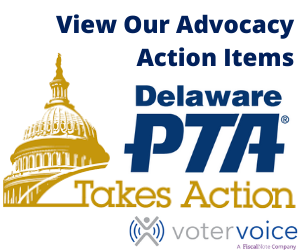In order to maintain tax-exempt status, 501(c)(3) nonprofit organizations cannot engage in political campaigning. Nonprofits with 501(c)(3) tax exempt status should be ever vigilant about this prohibition — a violation could result in severe consequences.
The federal tax law is very strict on the issue of political campaigning: A 501(c)(3) organization is absolutely forbidden to directly or indirectly participate in any political campaign on behalf of (or in opposition to) any candidate for elective public office. Violation of this prohibition could lead the IRS to completely revoke your organization’s tax-exempt status or impose excise taxes on your organization.
In other words, the IRS is serious about this issue, and your board of directors and officers should be equally serious in making sure that your organization complies with federal law in this area.
What Does “Participating in a Political Campaign” Mean?
Organizations with 501(c)(3) status cannot participate in political campaigns.
What is a political campaign? In general, the IRS rule refers to campaigns between people who are running for offices in public elections. These can include: candidates running for president of the U.S.; candidates running for governor; candidates running for mayor; and also candidates for lower elected offices such as school board officials, city supervisors, and county trustees.
What is “participating?” Your organization cannot participate in a campaign, directly or indirectly, on behalf of or in opposition to a candidate. If your organization takes a stand in any campaign, supporting or opposing one or another candidate, this violates the prohibition.
The IRS Rule
The IRS uses what is called a “facts and circumstances” test to help it determine whether an organization has violated the prohibition on political campaigning. This means that the IRS will evaluate any potential misconduct within the context of the organization’s other activities and the current political climate. So, an activity might be considered political campaigning two weeks before an election, but not two years before an election.
Some activities that the IRS has found to violate the prohibition on political campaigning include:
-
inviting a political candidate to make a campaign speech at an event hosted by the organization
- using the organization’s funds to publish materials that support (or oppose) a candidate
- donating money from the organization to a political candidate
- any statements by the organization’s executive director, in his or her official capacity, that support a candidate
- criticizing or supporting a candidate on the organization’s website
- inviting one candidate to speak at a well-publicized and well-attended event, and inviting the other candidate to speak at a lesser function
- inviting all candidates to speak at an event, but arranging the speaking event or choosing the questions in such a way that it is obvious that the organization favors one candidate over the others
- conducting a “get out the vote” telephone drive in a partisan manner by selecting caller responses for further follow-up based on candidate preference, and
- using the organization’s website to link to only one candidate’s profile.
What Political Activities Can a 501(c)(3) Nonprofit Engage In?
A 501(c)(3) organization can engage in the following activities without violating the IRS rule:
Non-partisan activities. Your organization may engage in non-partisan activities such as non-partisan voter registration drives, non-partisan candidate debates, and non-partisan voter education, as long as these activities fulfill your exempt purposes.
Legislative or issue advocacy. Your organization can engage in legislative advocacy and issue-related advocacy, as long as it follows certain rules and steers clear of political campaigning. (If your organization is contemplating such activities, it’s a good idea to get advice from a qualified attorney.)
And don’t forget that any individuals associated with a 501(c)(3) organization are entitled to voice their opinions and participate in a political campaign, as long as they are not speaking for the organization.
How Does the IRS Find Out About Violations?
Not surprisingly, in the heated atmosphere that usually accompanies a political campaign, people supporting an opposing candidate are often the ones to report any suspicious activities to the IRS. Your organization should remember that people arewatching and they will report your group if you appear to intervene in a political campaign in a partisan manner.
Penalties For Violations
If the IRS believes that your organization may have violated the prohibition, it may send a letter or visit your organization for an on-site examination. Although the IRS has the power to revoke your tax-exempt status, it typically uses this punishment only in the most egregious cases. More likely, the IRS will ask your organization to correct the violation and implement procedures to make sure the violation will not occur again. If the organization’s funds were used to engage in the prohibited activity, the IRS may also impose excise taxes.
Getting More Help
The IRS has several helpful publications on 501(c)(3) organizations and political campaigning. The Restriction of Political Campaign Intervention by Section 501(c)(3) Tax-Exempt Organizations provides an overview of the law. In addition, the IRS’s revenue ruling 2007-41 (found at http://www.irs.gov/pub/irs-tege/rr2007-41.pdf) provides a series of examples that will give you an idea of what constitutes partisan activities. Both documents can be found on the IRS’s website at www.irs.gov.




